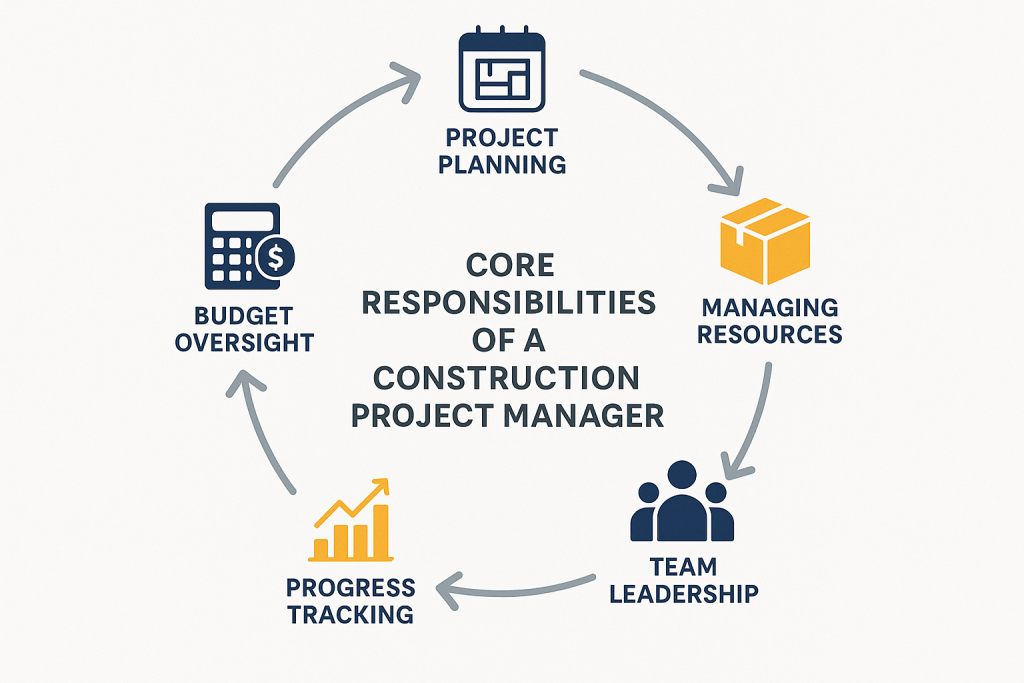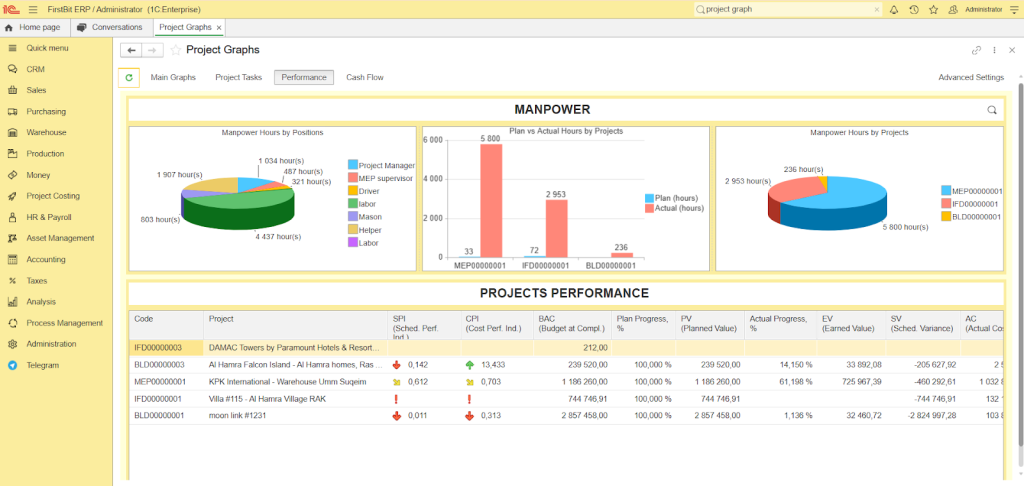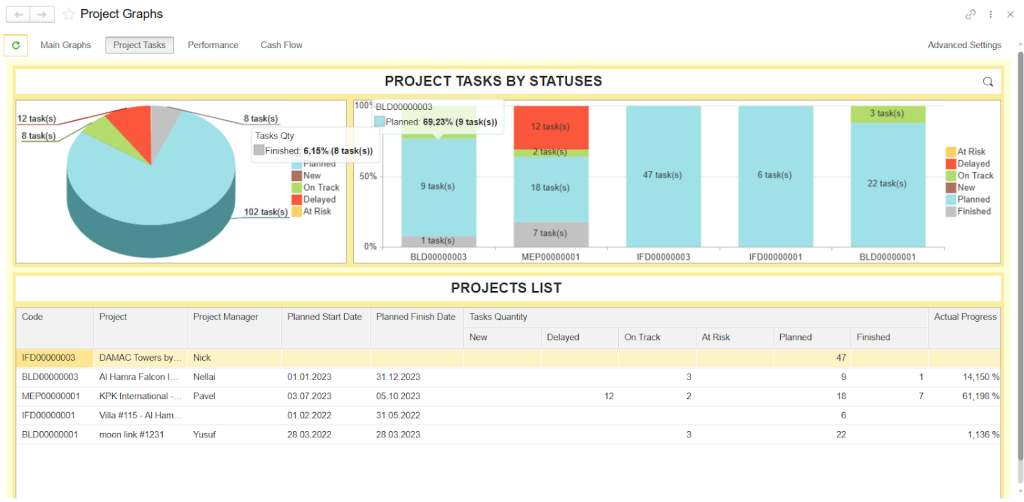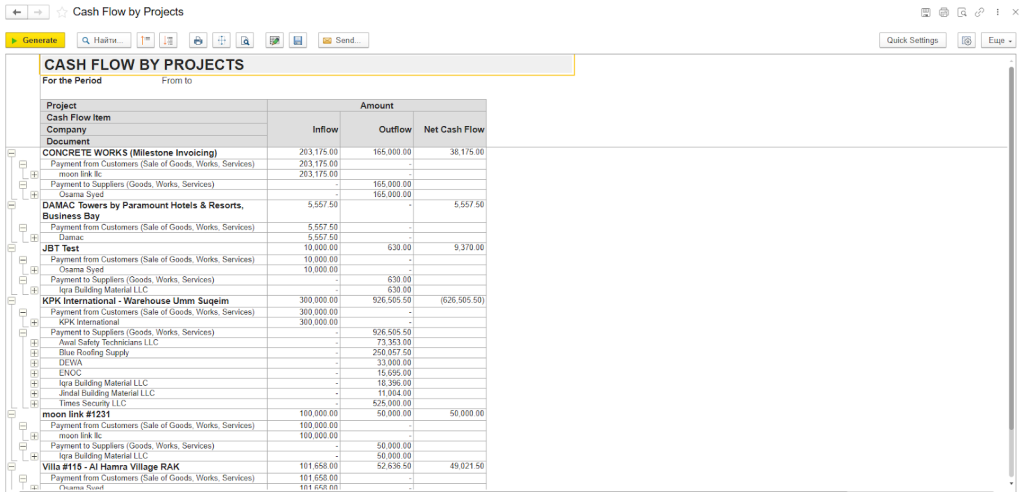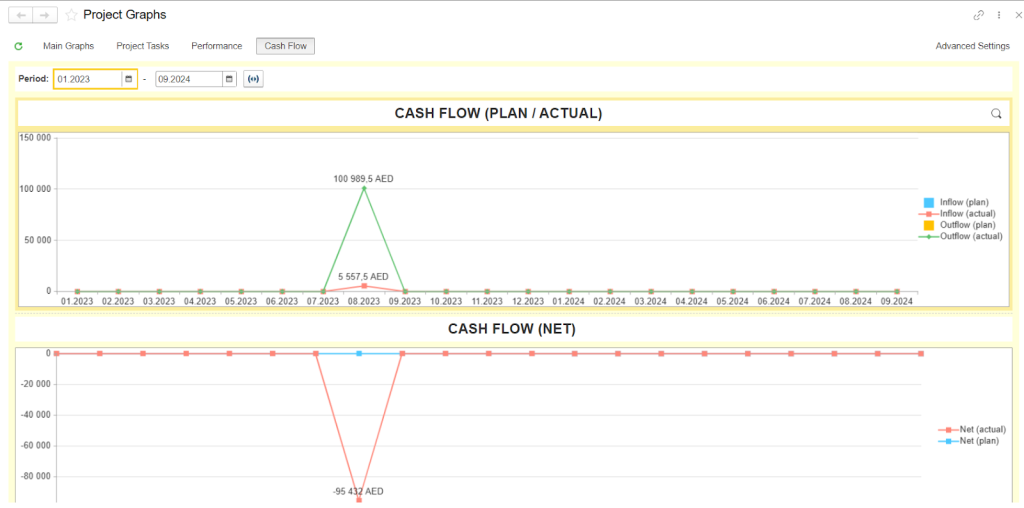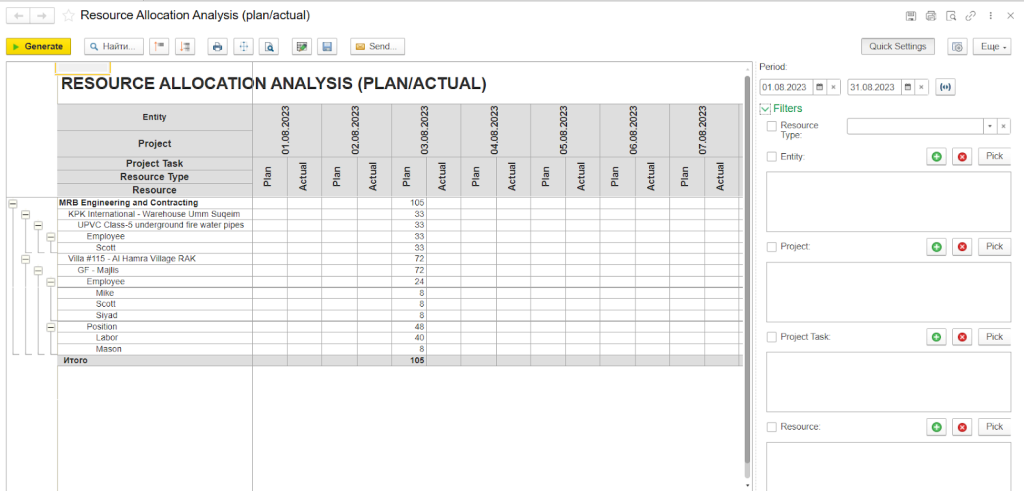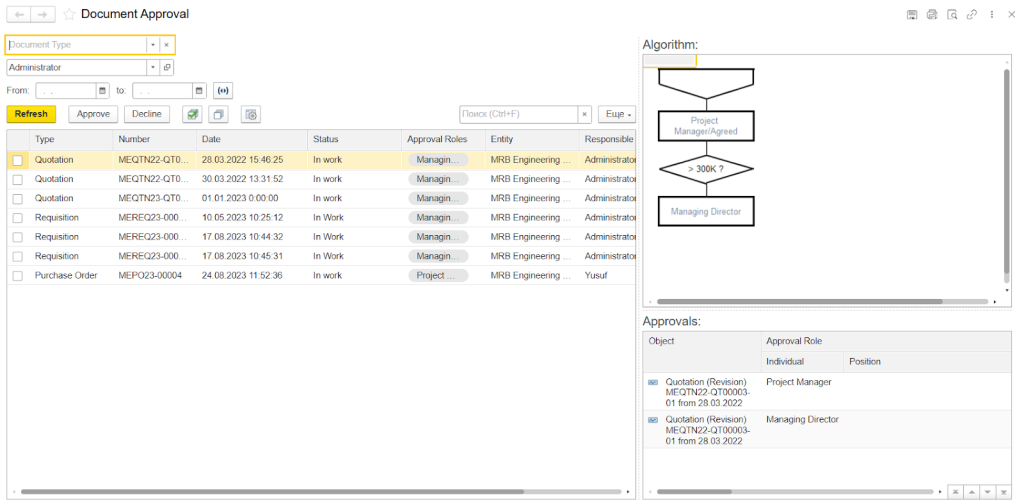Every construction site has many moving parts: schedules to manage, teams to coordinate, resources to allocate, and unexpected challenges to deal with. A construction project manager is the one who oversees all these elements. This individual turns blueprints into completed structures safely, on time, and within budget.
It's a demanding job. In fact, global data shows that 9 out of 10 large construction projects finish late or overspend budgets
[?]. Behind many of those failures is a lack of clear leadership and control. A project manager fills that gap, aligning people, resources, and priorities even when the stakes are high.
This guide breaks down what a project manager does. You'll learn about the skills they need, the environments in which they work, and the tools that simplify construction project management.
Who Is a Construction Project Manager
A construction project manager is the person who coordinates all the moving parts of a construction project. They connect everyone who is involved in it: clients, architects, engineers, contractors, and subcontractors. Without this oversight, coordination breaks down, deadlines get missed, and costs spiral out of control.
The manager’s job starts long before the first brick is laid. From pre-design to final handover, they guide the entire project lifecycle. This means setting goals,
planning budgets, managing teams, and keeping things on schedule. They don’t just supervise; they lead, troubleshoot, and make decisions that impact every part of the build.
In practice, this means a project manager acts as the bridge between:
-
Clients who want to see results and get updates.
-
Architects and engineers who create technical plans.
-
Contractors and subcontractors who carry out the physical work.
-
Regulators who enforce labor and safety laws.
Their role is to keep these stakeholders aligned while delivering quality and staying on budget.
Smart construction project managers hold short, regular check‑ins to keep all stakeholders aligned, rather than relying only on long monthly meetings. This approach creates faster feedback loops and reduces costly miscommunication.
Core Responsibilities of a Construction Project Manager
Construction project managers lead, coordinate, and solve problems every day. Their role covers every project phase: from early planning to final handover. Each task they handle directly impacts cost, safety, and quality.
Let’s break down all the key responsibilities:
An infographic showing the core responsibilities of a construction project manager
Planning
Every project begins with a clear plan. The manager defines the scope, goals, and deliverables, then builds a timeline with milestones and deadlines. They also guide design approvals, secure permits, and ensure compliance with local laws before work begins. Strong planning reduces the risk of surprises later.
Key tasks:
-
Define scope, goals, and deliverables
-
Build timelines and identify the critical path
-
Secure permits and guide approvals
Always break down large construction projects into smaller milestones. This makes it easier to track progress, forecast costs, and catch problems before they escalate.
Managing Resources
A construction project manager is responsible for budgeting labor, equipment, and materials. That includes forecasting costs, tracking usage, and adjusting allocations as the project evolves.
If a supplier misses a delivery or a crew needs overtime, the manager balances the numbers and keeps the site running.
Key tasks:
-
Plan budgets for labor, equipment, and materials
-
Allocate resources across all project phases
-
Adjust plans to avoid shortages or waste
Leading the Team
Project managers recruit and supervise diverse professionals. They also delegate responsibilities and keep everyone accountable. They set work standards, promote safety, and foster collaboration among teams.
Key tasks:
-
Recruit and supervise multi-disciplinary teams
-
Delegate tasks and set performance benchmarks
-
Promote safety and teamwork
Tracking Progress
Once the project is underway, the managers monitor milestones and quality standards. They also provide regular updates to keep clients and stakeholders informed, ensuring transparency. If obstacles appear (e.g, a defect or missed deadline), the project manager responds quickly to
reduce delays.
Key tasks:
Overseeing the Budget
A construction project manager establishes financial plans, reviews expenditures, and manages change orders. Their ability to align expenses with targets often determines whether a project is profitable or not. The goal is to keep the project on budget without cutting corners.
Key tasks:
-
Establish and manage financial plans for labor, equipment, and materials
-
Approve change orders under strict control
-
Keep costs aligned with the budget to maintain project profitability
Pro Tip: An ERP system can make budget control simple. For example, with FirstBit ERP, you can track costs in real time, plan accurate budgets, allocate expenses across departments, and forecast cash flow.
Achieve peak productivity on site
Manage teams, equipment, and materials in FirstBit
Request a demo
Key Skills of a Construction Project Manager
Being a construction project manager goes far beyond drafting schedules or setting deadlines. It involves leading teams, solving problems, and keeping projects moving forward.
This kind of responsibility demands more than technical knowledge. It requires a unique set of skills that transform good managers into great ones.
Let’s explore the key capabilities that distinguish skilled project managers.
Leadership Skills
A good project manager leads by example, keeps the team focused, and ensures safety and quality are never compromised. No matter the size of the crew, strong leadership keeps the site productive and professional.
Strong leadership means:
-
Holding teams accountable without micromanaging
-
Encouraging collaboration and respect
-
Making decisions quickly and confidently
Communication Skills
Clear and professional communication prevents misunderstandings that can lead to delays or disputes. That’s why your ability to explain plans, give updates, and resolve conflicts is essential.
Effective communication includes:
-
Giving clear instructions and feedback
-
Writing accurate reports and updates
-
Listening to concerns and resolving issues early
Did you know that nearly 48% of construction rework stems from poor management and miscommunication[?]? A skilled project manager helps prevent almost half that waste before it happens.
Honesty and Moral Principles
Trust matters. Clients rely on project managers to manage budgets, timelines, and safety. Teams depend on leaders who show fairness and consistency.
Being transparent, especially when things go wrong, builds long-term relationships. It also helps avoid legal issues and protects your reputation.
Integrity shows in:
-
Honest reporting of progress and setbacks
-
Fair treatment of workers and subcontractors
-
Ethical decision-making in financial matters
Risk Mitigation
Construction work is full of challenges: bad weather,
supply chain delays, and labor shortages. A project manager spots these risks early and plans alternatives. For example, if dates of deliveries are uncertain, they might arrange backup suppliers. So planning ahead instead of waiting until issues arise helps managers cut both stress and costs.
Risk management involves:
-
Identifying potential delays or cost overruns
-
Creating contingency plans
-
Ensuring safety protocols are followed
-
Applying technical expertise to analyze and mitigate risks
Technical Expertise
Finally, construction project managers need tools to base decisions on accurate data. This means being able to read project drawings and use software for scheduling or budgeting. With
FirstBit ERP, managers can track costs, allocate resources, and generate reports in real-time. This gives more control and reduces mistakes.
Technical skills include:
-
Confident use of ERP systems and scheduling tools
-
Understanding construction methods and materials
-
Accurate financial tracking and reporting
According to PMI, organizations that invest in project management practices waste 28 times less money than those that don’t[?]. Skilled managers equipped with the right tools can turn risks into savings.
Workplace of a Construction Project Manager
The workplace of a construction project manager is rarely limited to one setting. Managers move between offices, client meetings, and active job sites. This constant shift requires balancing administrative tasks with hands‑on oversight.
In the office, managers handle schedules, budgets, and reports. They review drawings, update stakeholders, and manage contracts. It’s where decisions are made before work begins and where problems get solved when conditions change.
On‑site, the focus shifts to safety, quality, and progress. Project managers coordinate team members, monitor progress, and ensure safety compliance.
Most managers work in a hybrid rhythm — alternating between meetings with architects or clients and inspections at various sites. On large projects, this can mean splitting time among several job sites within the same week. Flexibility is important here because no two days are alike.
Common places where a project manager works:
-
Office: Planning, reporting, payroll, contracts
-
Construction site: Safety checks, progress monitoring, resource allocation
-
Client meetings: Updates, negotiations, approvals
-
Virtual platforms: ERP solutions, digital dashboards, financial tracking
Boost project performance
Request a demo
How FirstBit Empowers Construction Project Managers to Deliver Projects on Time and Budget
Even the most experienced construction project managers struggle when data is scattered. Manual reports and endless calls slow decisions and increase the risk of budget overruns. That’s why smart project managers use tools that help them stay in control.
FirstBit ERP is designed for construction professionals like you. It organizes your data, automates reporting, and shows real-time project details. No more outdated spreadsheets or guesswork about actual costs. You see everything, clear and fast.
Here’s how FirstBit helps you manage smarter:
1. Project Performance Dashboard
Track your project’s health in real time. You get instant updates on task progress, cost status, and schedule alignment. If something’s off, you’ll know early and fix it before issues escalate.
Project performance graphs in FirstBit ERP
Project tasks by statuses in FirstBit ERP
2. Cash Flow by Project
With
FirstBit, you can monitor every inflow and outflow tied to each project. This helps you plan payments and avoid liquidity issues. No more guessing if you can afford the next phase.
Cashflow by projects in FirstBit ERP
You can also compare planned costs against actual in the selcted time period.
Cash flow (plan/actual) in FirstBit ERP
3. Resource Planning
Delays often result from poor scheduling of labor or equipment.
FirstBit ERP provides a clear overview of available resources, identifies what or who is needed, and guides you on where to allocate resources to prevent downtime. This way you can stay ahead — not behind.
Resource allocation analysis in FirstBit ERP
4. Approvals & RFIs
Bottlenecks sometimes happen because approvals stay unread in email inboxes.
FirstBit ERP streamlines requisitions, budget confirmations, and technical queries within one system. Quick responses mean fewer delays, smoother collaboration, and full transparency for every stakeholder.
Document approval in FirstBit ERP
5. Integration with Finance, Procurement, and HR
FirstBit connects your project data with
finance,
payroll, and
procurement. That means fewer errors, faster reporting, and better decisions.
For example, when your HR team updates leave statuses, those changes automatically integrate into budgeting and payroll systems. This way, you always have real-time visibility into labor costs. With procurement integrated into the system, all spending decisions—ranging from equipment purchases to outsourcing—are always made with full awareness of financial limits and HR capacity.
Why it matters:
Large construction projects typically take 20% longer to finish than scheduled and run up to 80% over budget[?]. With FirstBit ERP, you reduce those risks by staying informed, organized, and proactive.
Conclusion
Construction project managers don’t just oversee tasks—they plan, lead, and solve problems when they happen. Even the best‑designed projects can suffer delays and cost overruns without effective management..
The good news is that you don’t have to handle it all with manual tools or scattered spreadsheets.
FirstBit ERP gives you real‑time control of schedules, budgets, and resources. The result is better oversight, higher productivity, and stronger financial performance. And honestly, who wouldn’t want to work with a project manager who consistently delivers on time and on budget?
Take charge of your construction projects today.
Stay ahead of schedule
Control project timelines through FirstBit
Request a demo
FAQ
What is a Construction Project Manager?
A Construction project manager is the person who plans, coordinates, and oversees building projects from start to finish. They manage timelines, budgets, teams, and safety to ensure everything runs smoothly and meets client expectations.
What are the main responsibilities of a Construction Project Manager?
A Construction project manager handles project planning, resource allocation, team leadership, progress tracking, and budget control. Every decision they make affects cost, quality, and delivery.
How is a Construction Project Manager different from a General Contractor?
A Construction project manager oversees the project lifecycle, including planning and stakeholder communication. A General Contractor focuses on executing the physical construction work on-site.
What skills does a good Construction Project Manager need?
Strong leadership, clear communication, and technical know-how are essential. They also need budgeting skills, risk management abilities, and the ability to coordinate diverse teams.
What types of projects do Construction Project Managers handle?
Construction project managers manage residential, commercial, and infrastructure projects — from homes and offices to hospitals, bridges, and industrial facilities.
Margaret Oboigbe
Contributing Author
Margaret Oboigbe combines industry knowledge with practical experience. She delivers content that empowers construction teams to improve performance, safety, and profitability across their projects.




